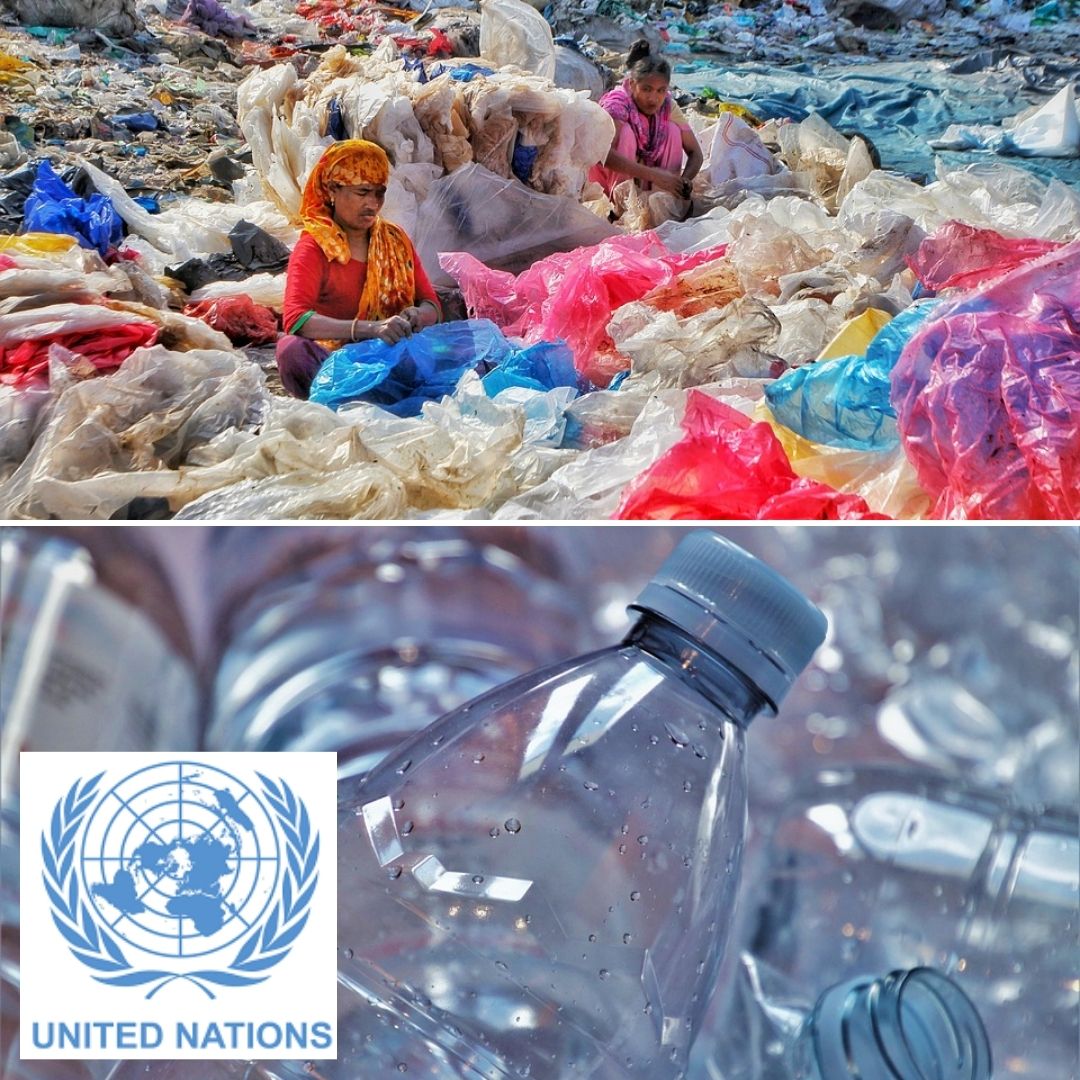'No More Plastic': 175 Nations Sign Mandate In UN Environment Assembly To Combat Plastic Pollution
Writer: Shiva Chaudhary
A post-graduate in Journalism and Mass Communication with relevant skills, specialising in content editing & writing. I believe in the precise dissemination of information based on facts to the public.
India, 3 March 2022 12:30 PM GMT | Updated 3 March 2022 12:34 PM GMT
Editor : Snehadri Sarkar |
While he is a massive sports fanatic, his interest also lies in mainstream news and nitpicking trending and less talked about everyday issues.
Creatives : Shiva Chaudhary
A post-graduate in Journalism and Mass Communication with relevant skills, specialising in content editing & writing. I believe in the precise dissemination of information based on facts to the public.
The countries, parties signed a mandate which makes it a 'legally binding agreement' by 2024 for the signatories to address the complete life of plastics — from production to disposal, to end plastic pollution.
In a significant step towards curbing plastic pollution worldwide, 175 countries, including India, endorsed a historic resolution at the United Nations Environment Assembly (UNEA) on March 2. The countries, parties signed a mandate which makes it a 'legally binding agreement' by 2024 for the signatories to address the complete life of plastics — from production to disposal, to end plastic pollution.
The resolution based on three initial draft resolutions from various nations, including Japan, Peru and Rwanda, establishes an Intergovernmental Negotiating Committee (INC), which will now be tasked with drafting and ratifying the mandate over the next two years.
INC will commence its work this year to finish a drat global legally binding agreement by the end of 2024. The final text retained the term "voluntary" as a choice upon insistence by India, reported the Indian Express.
A Global Plastics Treaty adhering to the blueprint laid out in Wednesday's mandate will join the Montreal Protocol and the Paris Climate Agreement as one of the most significant international environmental laws in world history.
What Does The Mandate Say?
As per the mandate, the resolution will tackle the complete life cycle of plastic from production to disposal, to end plastic pollution, not just post-consumer waste. It is an essential transition in international policymakers' approach to the crisis, which earlier concentrated on plastic as a "marine litter" issue.
The resolution recommends measures to tackle plastic production, which currently is slated to almost quadruple by 2050, and take up 10-13% of the global carbon budget, endangering climate, reported Times of India.
The resolution also recommends addressing the toxic burden of plastic. Many studies have revealed the impact of plastic in the environment and its presence in the air, agricultural lands, and drinking water. These studies show that the toxic chemicals from plastic enter the human body through various routes, causing infertility, cancers, and metabolic dysfunction, among others.
India's Stand
Environment Minister Bhupender Yadav is leading the Indian delegation at the UN Summit in Nairobi, Kenya. He tweeted, "Historic step at UNEA 5.2. 175 nations endorse a resolution to beat plastic pollution and forge an international legally binding agreement by 2024. Under leadership of our PM Narendra Modiji, India has already taken resolute steps to address plastic pollution."
As of now, India has banned single-use plastic effective from July 1. Recently, the centre has released new guidelines for manufacturers, brand owners, and importers of plastics, making it mandatory for them to recycle and has drawn up a pathway to incorporate the large informal sector involved in plastic recycling in a more formal circular economy.
Also Read: Caring For Hearing! Significance Of World Hearing Day & Raising Awareness About Deafness
 All section
All section















